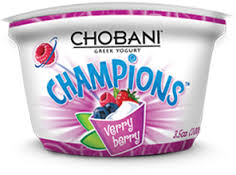 Cross-posted at WLF’s Forbes.com contributor page
Cross-posted at WLF’s Forbes.com contributor page
With new, strikingly similar class actions being filed seemingly every day, the litigation industry’s crusade against food and beverage companies for “fraudulent” or “misleading” labeling has almost become monotonous. Thankfully, the occasional mini-saga breaks the tedium. The latest involves the humble, though now ubiquitous, Greek yogurt, and a suit against producer Chobani. Kane v. Chobani has had many twists and turns, but with a ruling last week, the plot may be moving to a fulfilling denouement.
Good Enough for Kids. Before getting into the Kane saga, we must note a delicious irony. Contrary to the opinion of Ms. Kane and her unnamed (and unknowing) class of plaintiffs, the federal government is quite a fan of the protein-packed product. The U.S. Department of Agriculture announced in July that it will be purchasing Greek yogurt for schools participating in a federally assisted program that subsidizes school lunches.
Previous Developments. On July 12, Northern District of California Judge Lucy Koh dismissed one of Ms. Kane’s claims but allowed the majority of her complaint to survive. Three days later, Judge Koh denied Kane’s preliminary injunction against Chobani’s sale of products with “evaporated cane juice” on the label. On July 25, she agreed to Chobani’s request to vacate the July 12 order. Then, on August 2, the judge ordered the disqualification of one of Kane’s expert witnesses, but refused to disqualify Kane’s lawyers.
September 19 Order. In last week’s decision, Judge Koh reexamined Kane’s claims that Chobani’s use of the term “evaporated cane juice” (ECJ), its “no sugar added” claims, and its “all-natural” label statements were false or misleading under California law.
On the use of ECJ, the court found that Kane had disavowed the legal theory that Judge Koh endorsed in her July 12 ruling: Kane had reasonably believed that ECJ was healthier than refined sugars or syrups. Upon reconsidering Kane’s ECJ claim, Judge Koh found that Kane could not sufficiently plead reliance and thus lacked standing to sue. As reflected in her complaint, Kane understood that dried cane syrup was a form of sugar, so it was unreasonable to think that Kane didn’t understand that cane juice was a also form of sugar. Kane’s complaint did not explain that lack of understanding, nor did it describe what cane juice was if it wasn’t sugar. Kane will unfortunately have another crack at that, since Judge Koh dismissed the claim without prejudice.
Judge Koh also found that Kane could not plead reliance on Chobani’s no sugar added claims on its website because Kane did not establish that she actually viewed Chobani’s website. The court also dismissed that claim without prejudice. The court similarly dismissed, without prejudice, all claims based on products that Kane did not actually purchase, as Kane failed to show the non-purchased products were “substantially similar” to the purchased products.
Finally, Judge Koh turned to the all-natural ingredients claim. Kane argued that had she known that Chobani colored its yogurt “artificially” with “fruit or vegetable juice concentrate” (thus rendering the product not “all natural”), she wouldn’t have bought it. Judge Koh reminded Kane that she purported to have read the yogurt’s label, and that the ingredients clearly include “Fruit and Vegetable Juice Concentrate (For Color).” Thus Kane could not have reasonably relied on Chobani’s “all natural” statements. Judge Koh offered Kane an opportunity to cure her pleadings on this point, but it’s hard to see how she’ll be able to do that.
Judge Koh’s conclusion that Kane had to consider the all-natural claim in the larger context of the label, including the ingredients, is quite notable. It seemingly runs counter to the U.S. Court of Appeals for the Ninth Circuit’s Williams v. Gerber Products ruling. In Williams, the court refused to consider information in the ingredients list when determining whether a consumer was reasonably deceived by a food label’s representations. Kane is not the first case to appear at odds with Williams. Last May, in Hairston v. South Beach Beverage, Judge Walter of the Central District of California dispelled Hairston’s claim that the label statement “all natural” was deceptive by making reference to the ingredients. An August 2012 Law360 article offers an interesting explanation for why Hairston may not necessarily conflict with Williams.
The Saga Continues? Kane and her lawyers will undoubtedly amend the complaint and initiate another round of motions, necessitating more legal fees and costs for Chobani, and requiring more taxpayer-funded court time. But Judge Koh’s September 19 order is a very significant step forward, especially if her “all natural” holding inspires other judges to assess all the information on a product label when determining reliance under California consumer protection law.
If nothing else, Chobani’s perseverance and forceful defense sends a message that companies can contest and win lawsuits in “The Food Court.”
